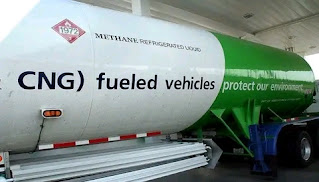💡 NaijaLPG | We build your LPG Gas Plant from scratch — to your exact taste and safety standard ⚙️ |
Turnkey Design • Installation • Licensing • Maintenance 🔧 |
Get started today — Contact Us! 📞 |
Your trusted LPG project partner 💼
Because initially the safety measures of the vehicle was designed for fuel, now converted to CNG.
In term of safety CNG is more safer than any of the alternative. CNG combustion produces less air pollution than gasoline, and compressed natural gas is also safer than other fuels in the event of a spill, because natural gas is lighter than air and disperses quickly when released.
As taught in chemistry class, I know how flammable natural gas is. Users should use a very thicken storage or tanker to avoid ignition. CNG is for factories or demands with no access to pipeline networks because they are transported by CNG tubes which are highly inflammable. The higher the distance the higher the rate.
Running a vehicle on CNG is generally safe, but there are safety concerns to be aware of, especially regarding explosions:
1. CNG Storage: CNG is stored in high-pressure tanks. If the tank is damaged or poorly maintained, it could lead to gas leaks, which, in extreme cases, may cause an explosion if exposed to a spark or open flame.
2. Proper Ventilation: CNG is lighter than air, so in case of a leak, it dissipates quickly. However, in confined spaces like garages, a leak could build up and pose a risk of explosion if it comes into contact with an ignition source.
3. Tank Safety: Modern CNG tanks are designed to withstand high pressure and are equipped with safety valves to release gas in a controlled manner if pressure builds up too much, preventing an explosion.
4. Installation & Maintenance: Poor installation or lack of regular checks can lead to faulty connections or wear and tear, increasing the risk of leaks and explosions.
If CNG systems are properly installed, regularly inspected, and maintained, the risk of explosions is very low, making CNG a safe fuel option for vehicles.


